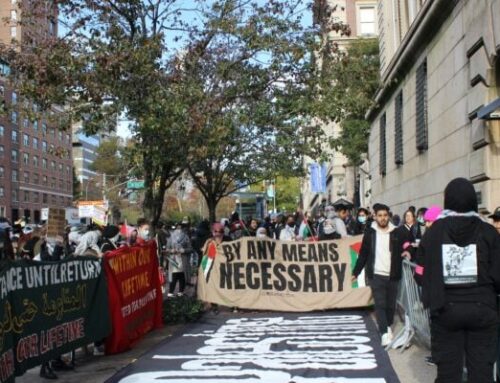What Is Peace?
Friday, December 10, 2021
By Dr. Ray Rooney, Jr.
Reprinted from American Family Association
Most people think they have a solid understanding of the word “peace.”
Many simply define peace by its antonym (war). So peace is merely the absence of war (or conflict). America finally ended its longest war (Afghanistan). I won’t go into the disgraceful and politically harmful way we ended it but it is over nonetheless. Do you feel like our nation is at peace? Or what about the person who is enduring tremendous strife and conflict at work. When he comes home leaving behind the turmoil does he suddenly feel at peace?
Others believe peace is a state of spiritual bliss mostly associated with those who are in heaven. Everyone in heaven is at peace, right? We often hear (or say) the phrase “rest in peace” when someone we care for dies. Yet Lucifer didn’t seem to be at peace with how things were going in heaven. Apparently, it was not too difficult to convince a third of all the angels that they were being deprived of something by God. I thought blissful peace was the state of all in heaven? And what about the souls under the heavenly altar in Revelation 6? If peace is merely making it to heaven why would they cry out:
O Sovereign Lord, holy and true, how long before you will judge and avenge our blood on those who dwell on the earth? (Revelation 6:10)
They made it to heaven and yet do not seem to be in a state of blissful peace. As a matter of fact, they seem to be quite angry and unwilling to let go of what happened to them on earth.
By far and away, however, the most prevalent way people define peace is to align it with happiness. If you are happy then you are at peace. If you are experiencing peace you must be happy. Except that, I know I’m not happy when I’m hurting. Does that mean I cannot be at peace? If we define peace as the presence of happiness then when virtually any of life’s crises arrive we are doomed to be completely without peace.
Those who define peace as the presence of happiness rarely get to experience it.
A much more helpful (and biblical) definition of “peace” is this:
Peace is coming to terms with God’s love and will for my life regardless of life’s circumstances.
Look at Jesus in the garden of Gethsemane. The time of His passion and suffering had arrived. It weighed on Him heavily. So much so that he told Peter, James, and John “My soul is very sorrowful, even to death…” (Matthew 26:38). He then went a little away from them and prayed, “My Father, if it be possible, let this cup pass from me; nevertheless, not as I will, but as you will” (Matthew 26:39).
Clearly, Jesus was troubled (to say the least). We know Jesus wasn’t given to exaggeration so His claim about sorrow bringing Him to the edge of death was very real. Yet when He verbalized a desire for another way He quickly followed it with a greater desire to live in the Father’s will. And He was obviously ready to do the Father’s will going forward. The worst lay ahead. But once He made it a point to remain on board with the Father’s will…peace. The circumstances remained horrific. But He was at peace with going forward.
It is only when we yield to God’s will (no matter how much we yearn for another way) that we finally understand and experience what the Bible means by “Shalom.” Do a little research on “Shalom.” You’ll find that it means much more than an absence of conflict, spiritual bliss, or happiness. It means to find and experience wholeness, completeness, and fulfillment. It means to abide in God’s presence in the midst of a fallen world.
Peace is accepting comfort from God’s rod and staff in the midst of the valley of the shadow of death. Not turning back. Not questioning His plan. Not even lashing out at the darkness and the presence of death. Peace is accepting that God knew the dark valley was ahead and that you would enter it. But knowing as well that He would provide exactly what you need to get through it.
In Ephesians 2 Paul paints a very bleak picture of what life without Jesus Christ looks and feels like.
- you were dead in…trespasses and sins…
- children of wrath
- sons of disobedience
- alienated
- no hope and without God
That is attempting to traverse the valley of the shadow of death with neither rod nor staff. But look at the remedy:
But now in Christ Jesus you who once were far off have been brought near by the blood of Christ. For he himself is our peace…(Ephesians 2:13).
Peace is not defined by circumstances or a state of mind. It is defined by a Person. Without Him, we can run from conflict, make vague platitudes about spiritual bliss, and surround ourselves with what makes us happy…and be completely destitute of shalom.
The peace that passes understanding is real. A wealthy man once lost his fortune in a catastrophe. Not long after that, he lost all five of his children (his son died of Scarlet Fever and all four of his daughters drowned in a shipwreck). Nevertheless, Horatio Spafford wrote, “It Is Well with My Soul.” There was no war, no bliss, and certainly not any happiness. But there was Jesus. And since He was there just as the 23rd Psalm promises, Spafford could write,
Though Satan should buffet, though trials should come
Let this blest assurance control
That Christ has regarded my helpless estate
And has shed His own blood for my soul.
It is well (it is well)
With my soul (with my soul)
It is well, it is well with my soul.
You might be able to grab wealth, power, happiness, and admiration in this life. But you will never experience peace without embracing God’s love and will for your life. His name is Jesus and he himself is our peace.
Is it well with your soul?
Shalom.







Leave a Reply, please --- thank you.